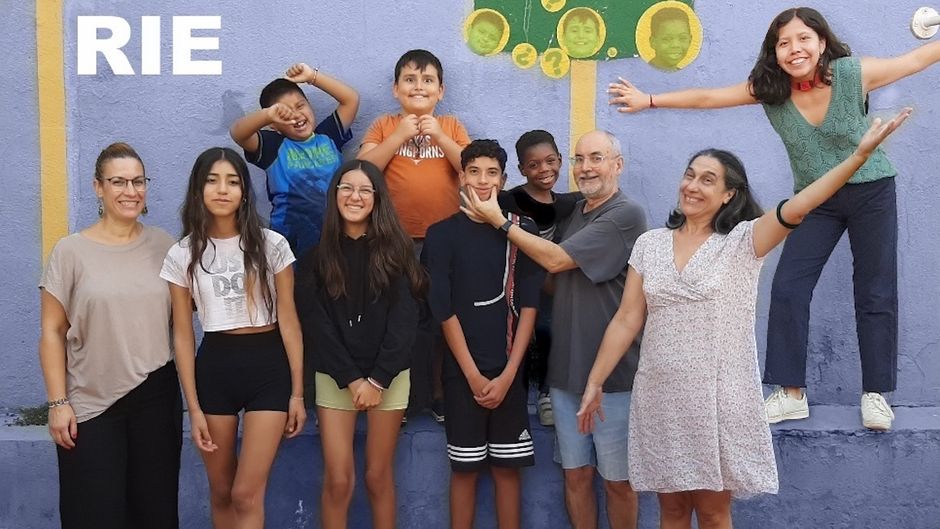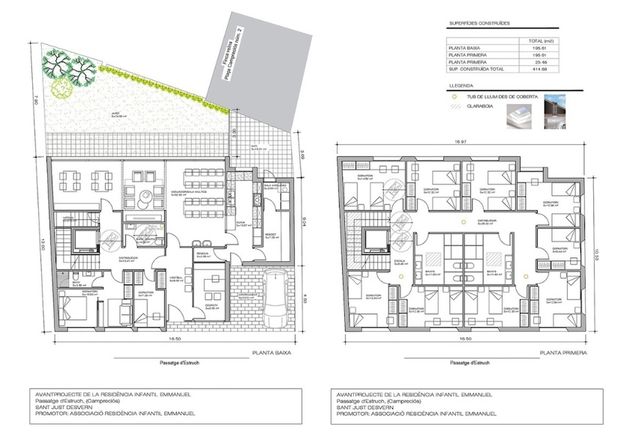The care of the children is integral, looking after each child “academically, physically, psychologically and spiritually”. Donations from evangelical churches, individuals and organisations can make the new project possible.
 The Emmanuel children's shelter, RIE, has been working for over 50 years./ Courtesy of RIE.
The Emmanuel children's shelter, RIE, has been working for over 50 years./ Courtesy of RIE.
History, social justice and taking care of vulnerable children, are the main pillars of the Residencia Infantil Emanuel (Emmanuel Child Shelter, RIE) project in Barcelona.
Fifty-five years after its creation by a group of evangelical women, the project continues to shelter and help children at risk of exclusion.
Fina Grau, president of the RIE explains that “there are currently seven children living here and there are six applications for admission for September 2024”.
“Each case is studied individually and we also arrange the compulsory schooling place for each child”, she says.
The educational team working with the boys and girls is made up of three people: Álex Sánchez and Carmen Collía, who live with the children, and Mariona Cardona, who works as an educator.
Located in the town of Sant Just Desvern (Barcelona), in the house of a Christian family who 45 years ago “lent their property temporarily until a suitable place could be found”, the shelter is in the process of moving to another location.
“It is an urgent need, to be able to care for more minors and comply with all the conditions that a shelter for minors must have according to the law”, points out Grau.
Moving everything, including the seven children and the two people in charge who live there, is not easy.
The organisation has a preliminary project for a new building on a site close to the current one, in the town of Sant Just Desvern. But it is still necessary to guarantee the possibility of carrying out the works and completing its construction.
“We have paid, by faith, the deposit for the land, and we trust that the Lord will allow us to have the necessary income to have the new building. The plot costs 480,000 euros and the construction of the new home will cost around 1.2 million euros”, explains Grau.

In order to do so, they ask, above all, for “prayers” and are also “knocking on many doors of companies, financial institutions, city councils, foundations, churches, individuals, etc., to receive donations that will help us to cover the entire project”.
Grau underlines that “any donation to the RIE is eligible for tax relief in the tax return”.
“The RIE has always received and continues to receive donations from individuals, evangelical churches, companies, etc. We also apply for annual subsidies from the Social Aid department of the City Council and from foundations that sometimes grant us a donation”.
“We also have in-kind donations from different companies and organisations, such as food or cleaning and sanitary materials”, explains Grau.
Officially, the RIE “is an 'emergency shelter' and in reality, it is a 'Christian shelter' where we help families who are going through different difficult situations”, explains Grau.
The care of the children is integral, looking after each child “academically, physically, psychologically and spiritually”.
The time spent at RIE depends on each family's situation. The children are in the facilities from Monday to Friday, and on weekends and holidays they go with their families. If this is not possible, they go with foster families.
With seven children living in RIE now, the current facility would be too small if the six applications for next September are approved, as it has capacity for 12 children.
“As long as there is a single application, one family, who needs the RIE to solve their situation, we believe that the project should continue. And now there is not just one request, there are six”, stresses Grau.
She and her team “firmly believe that the Lord is showing us that the RIE must continue to be a 'Christian shelter to provide a temporary emergency support for families in need”.

[photo_footer]The shelter hopes to continue its work. / Courtesy of RIE. [/photo_footer]
According to the president of RIE , “socio-economic conditions, especially those related to the migration of families, are causing an exponential increase in the percentage of children living in poverty in our cities”.
“That results in a higher number of families living in severe poverty, moderate poverty or with incomes close to the poverty line. This social situation is raising the awareness of institutions, which are spending more financial resources on the care and protection of children in precarious situations”, she added.
However, “that help is not enough to reach all children in need. As Christians, and through RIE, we must continue to be an effective response to our society”.
“Our current house, even though it has been a great blessing for many years, does not have the conditions to welcome all the children who need help, to offer them a safe and adequate space for their integral development and to give them the necessary tools to overcome difficulties and build a better future”, points out Grau.
That is why they are appealing “to the solidarity of the community", to get the necessary help to adapt the facilities “and to be able to continue to be light and hope for the most vulnerable children”.
Learn more about the Emmanuel Children's Residence (RIE) by visiting their website.
This article was produced for the Líderes Empresariales section of Protestante Digital, an initiative of the Gospel, Economy and Business (Tres-E) group in Spain.
[analysis]
[title]One more year[/title]
[photo][/photo]
[text]At Evangelical Focus, we have a sustainability challenge ahead. We invite you to join those across Europe and beyond who are committed with our mission. Together, we will ensure the continuity of Evangelical Focus and Protestante Digital (Spanish) in 2024.
Learn all about our #OneMoreYearEF campaign here (English).
[/text][/analysis]

Las opiniones vertidas por nuestros colaboradores se realizan a nivel personal, pudiendo coincidir o no con la postura de la dirección de Protestante Digital.
Si quieres comentar o